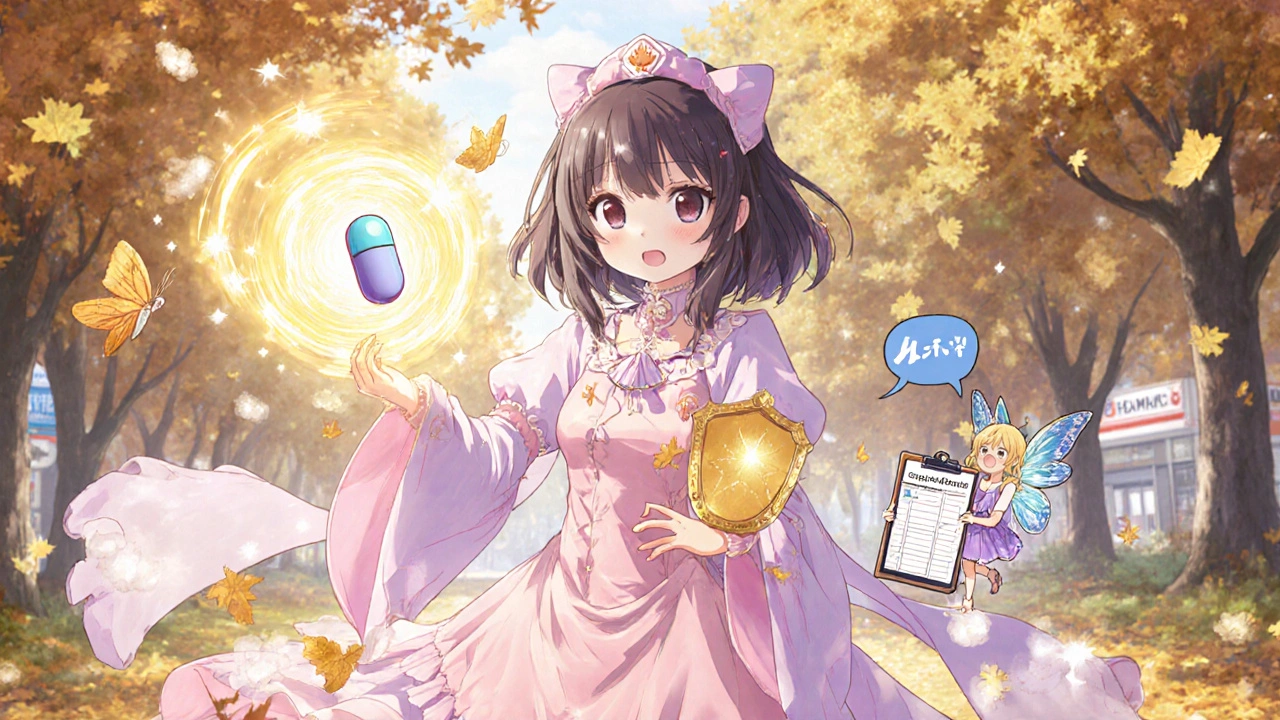Allergy Medicine: What Works, What to Avoid, and How to Use It Safely
When your nose runs, your eyes itch, or you can’t catch a full breath, allergy medicine, a category of drugs designed to block or reduce the body’s overreaction to harmless substances like pollen, dust, or pet dander. Also known as antihistamines, it’s one of the most common treatments people reach for—often without knowing which kind actually fits their symptoms. Not all allergy medicine is the same. Some work fast for sneezing and runny nose, others target itchy eyes, and a few are made for long-term use. The right choice depends on what triggers your allergies, how bad they get, and whether you’re using it daily or just during peak season.
Olopatadine HCL, a targeted antihistamine used in nasal sprays and eye drops to block histamine at the source of irritation. Also known as allergy eye drop, it doesn’t just numb the symptoms—it stops the reaction before it spreads. That’s why it’s often recommended over older oral pills for people who get seasonal eye swelling or redness. But if your problem is mostly nasal congestion or post-nasal drip, you might need something that works system-wide, like loratadine or cetirizine. And if you’re using it every day, you’ll want to watch for drowsiness, dry mouth, or interactions with other meds like sleep aids or pain relievers.
Many people assume allergy medicine is harmless because it’s sold over the counter. But taking the wrong kind, mixing it with alcohol, or using it for weeks without checking in with a doctor can cause side effects you didn’t see coming. Some older antihistamines make you so sleepy you can’t drive. Others raise blood pressure or mess with your heart rhythm if you have certain conditions. Even natural remedies like saline rinses or low-pollen gardens—something we cover in our posts—can help reduce how much medicine you need.
What you’ll find below isn’t just a list of pills. It’s a practical mix of real-world guides: how Olopatadine HCL works in your eyes, why timing your allergy meds matters when you’re also taking fiber supplements or blood pressure drugs, and how to spot when what you think is a cold is actually a hidden allergic reaction. You’ll see comparisons between brand and generic versions, learn which ones doctors actually recommend for kids versus adults, and find out what to do when your usual medicine stops working. No fluff. Just what you need to use allergy medicine safely—and get real relief without guessing.
Compare Claritin (loratadine) with Zyrtec, Allegra, and Benadryl to find the best allergy medicine for your symptoms, lifestyle, and budget - with real-world advice on what works, what doesn’t, and when to see a doctor.
Latest Posts
Medication-Induced Delirium in Older Adults: Recognizing the Signs and Stopping It Before It Starts
Nov 20 2025
 Pharmacology
Pharmacology